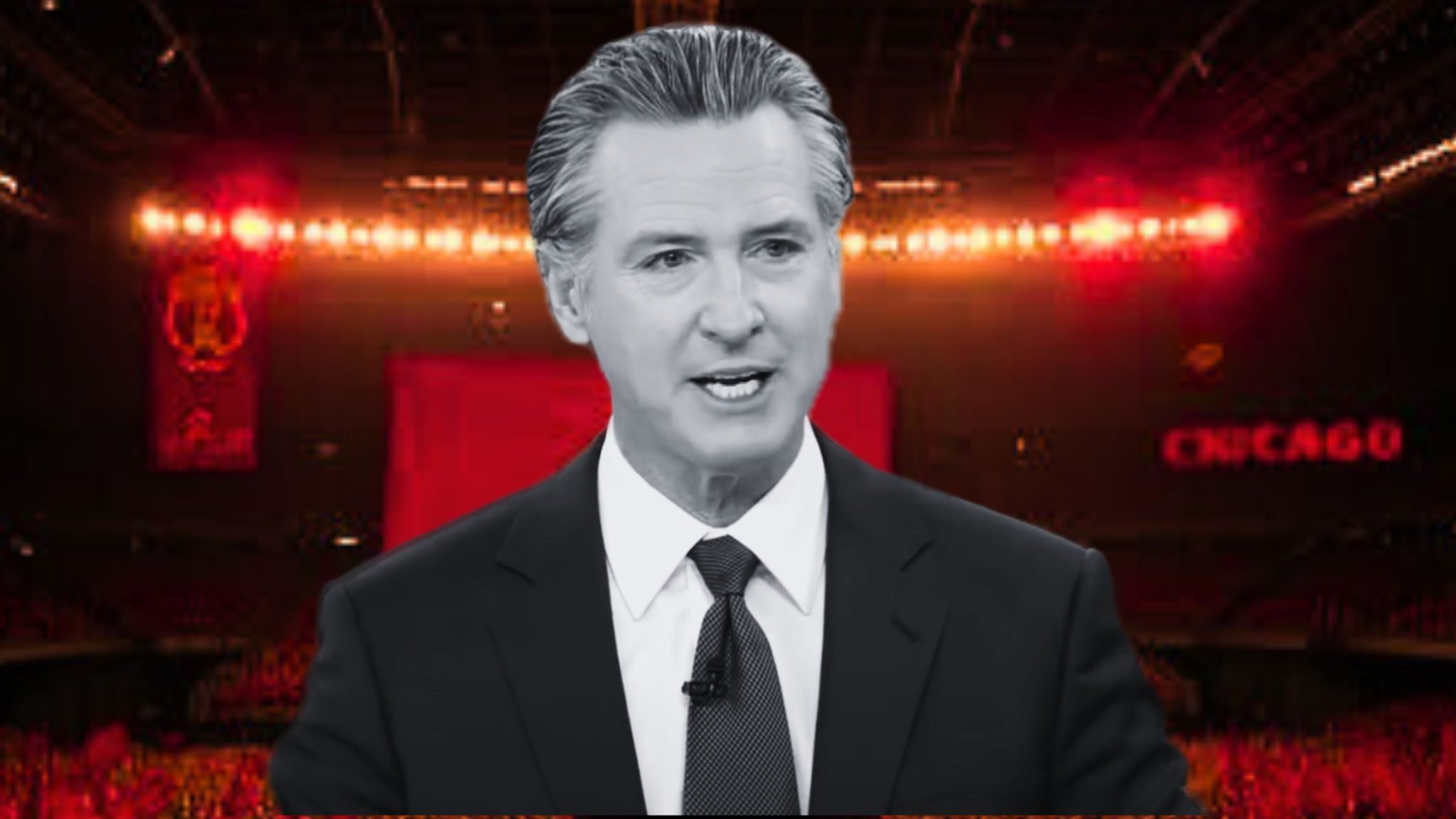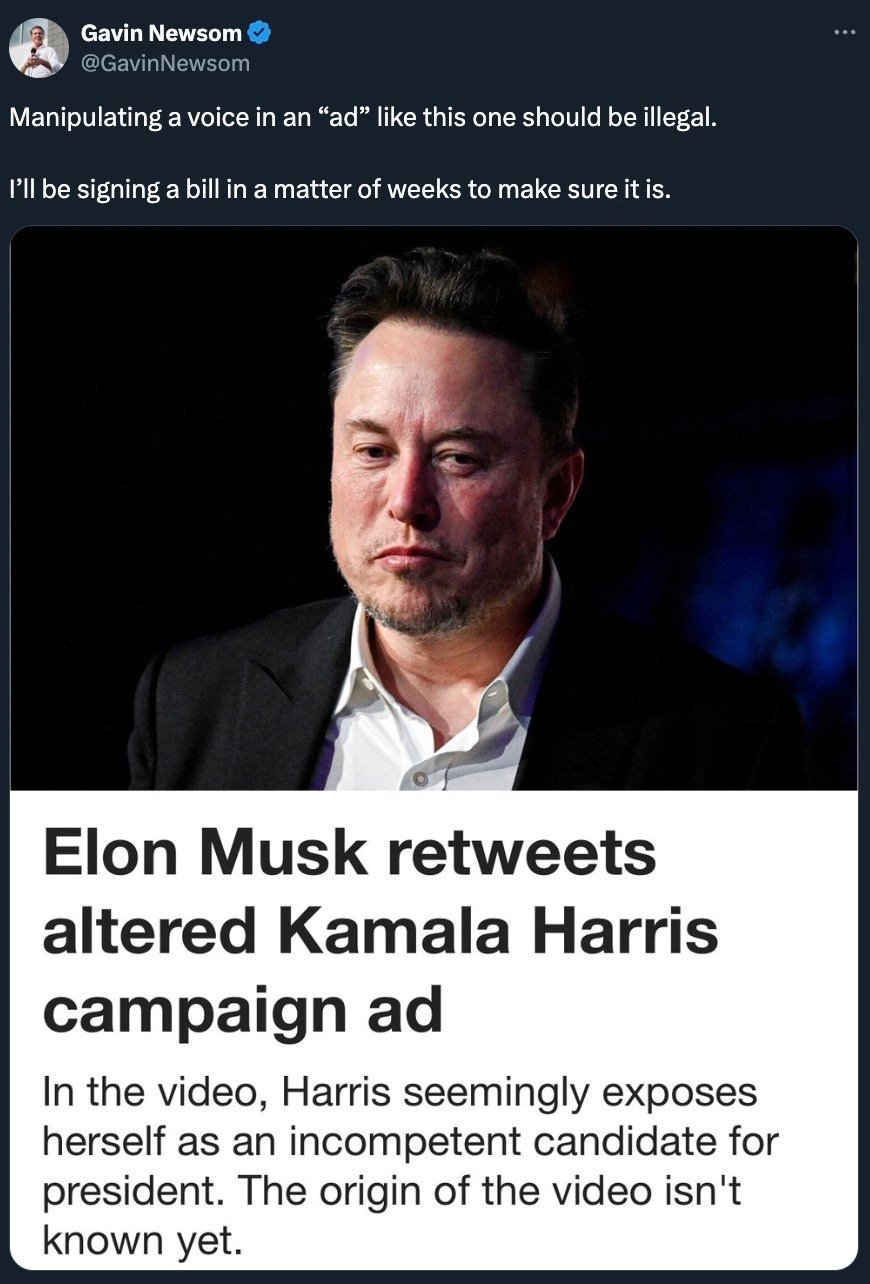by Dan Frieth, Reclaim The Net:

We were waiting for California Governor Gavin Newsom to sign on the dotted line of a new controversial bill that limits speech around AI “deepfake” content that many believe could impact memes. Now that Newsom has signed the bill, the first of several lawsuits against the censorial bills can be filed.
Christopher Kohls, an online content creator known for his political satire, has filed a lawsuit against the state, challenging recent legislation aimed at regulating AI-generated content. The lawsuit seeks to strike down two California laws which Kohls claims infringe upon First Amendment rights.
TRUTH LIVES on at https://sgtreport.tv/
Read the lawsuit here.
The controversy began when Kohls posted a satirical video parodying Vice President Kamala Harris, which quickly caught the attention of California Governor Gavin Newsom. Following the video’s viral spread, largely due to a share by Elon Musk, Governor Newsom criticized the content, leading to the swift passage of AB 2655, the “Defending Democracy from Deepfake Deception Act of 2024,” and AB 2839, related to “Elections: deceptive media in advertisements.”

Kohls’ lawsuit argues that these laws unjustly target political satire, a traditionally protected form of speech, by imposing strict regulations on AI-generated content that parodies or critiques political figures. “Political satire is a fundamental First Amendment right,” correctly states the lawsuit, emphasizing the role of such expression in American political discourse.
The specific legislation in question, AB 2655 and AB 2839, require social media platforms to block and prevent the dissemination of AI-generated videos that could potentially harm a candidate’s reputation or mislead voters. Kohls contends that these laws are not only overly broad but also set a dangerous precedent for free speech, particularly in how they regulate content based on its content and viewpoint.



